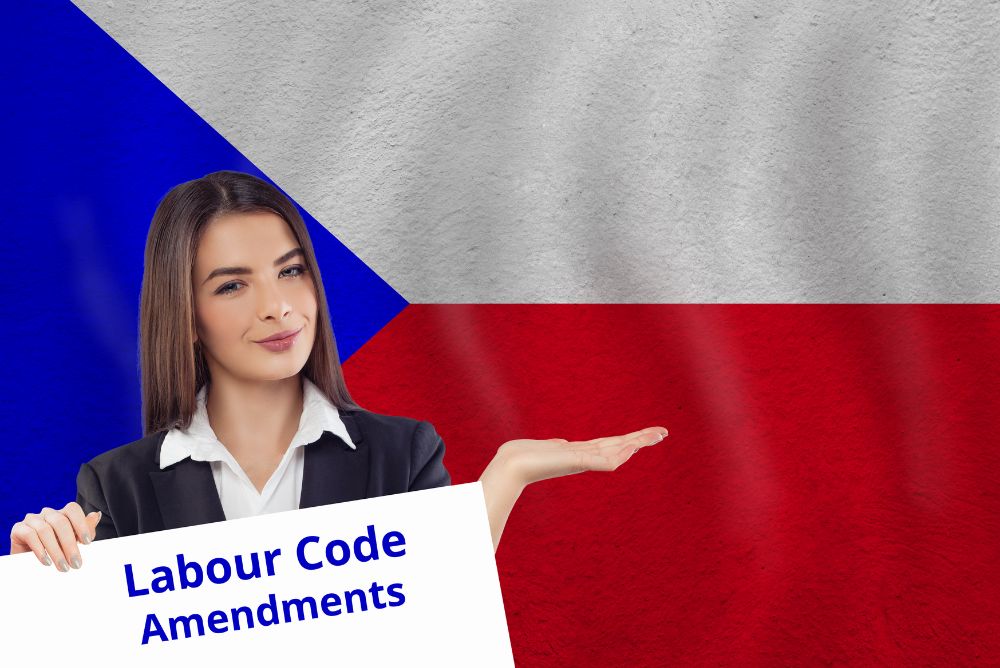
Czech Republic Labour Code Amendments approved by CoD
Earlier in March, the Chamber of Deputies approved some new flexible Czech Republic Labour Code Amendments.
Now all that is left is a decision by the Senate and the President’s signature for the amendment to take effect, which is expected on 1 June 2025.
The main points of the amendment under discussion are:
Extended Probationary Period:
The maximum probationary period will increase to 4 months for regular employees and 8 months for managers.
Currently the maximum probationary period is 3 months for regular employees, or 6 months for managers.
When a probationary period is agreed, the condition that the agreed length of the probationary period must not be longer than half of the agreed duration of the fixed-term employment relationship must be met.
Flexible Extension of Probationary Period:
Once the amendments are executed, there will be a possibility to extend the probationary period where it has been agreed to be shorter.
The probationary period may be extended by written agreement, but this extension must not exceed the maximum length of the probationary period, i.e. 4 months for employees or 8 months for managers.
Updates to Fixed-Term Contracts
Some modifications of the conditions for the renewal of fixed-term employment have also been approved.
The condition that the employment relationship may be agreed for a fixed period of maximum three years and may be renewed twice remains unchanged.
However, this would be a substitute for the temporary absence of an employee due to maternity, paternity or parental leave and the number of recurrences of fixed-term employment relationships will not be limited under Section 217(5) of the Labour Code.
However, the duration of fixed-term employment relationships between two parties may not exceed 9 years from the conclusion of the first fixed-term employment relationship.
Work During Parental Leave:
Employees will now be able to do the same work for the same employer during parental leave, on the basis of a work performance agreement or a work activity agreement.
Job Reintegration:
Employees will now have the right to get back their original job and workplace if the employee returns to work after the end of parental leave before the child reaches the age of 2.
This allows more flexible working conditions for parents of young children.
New Notice Period Rules:
Currently the notice period starts at the beginning of the calendar month following the month in which the notice is served and ends on the last day of the relevant calendar month.
After the amendment to the Labour Code, the notice period shall start on the day the notice is served to the other party and ends on the same date in the relevant future month.

Reduced Notice Period for Employee Resignations:
Employees resigning for reasons under Section 52(f) to (h) will have a minimum notice period of 1 month instead of the standard 2 months.
Higher Severance Pay
Severance pay will now increase to up to 12 month’s salary in cases where the employee is dismissed by the employer for the reason referred to in Section 52(e) or by agreement for the same reason.
This amendment covers employees that have lost his/her medical capacity due to his/her health condition according to a medical opinion issued by an occupational health service provider or a decision of the competent administrative authority.
Work Opportunities for Minors:
Allowing minors from the age of 14 to work during the summer holidays – provided that the work is light work, the shift does not exceed 7 hours per day and the weekly working time does not exceed 35 hours per week.

The length of the weekly working time shall be assessed cumulatively in multiple employment relationships agreed by the juvenile worker in accordance with Section 3 of the Labour Code. Juvenile employees under 15 years of age may not work after 8 pm. Juveniles may not perform overtime and night work.
Wage Payments in Foreign Currency
Employers will be allowed to pay wages in foreign currency subject to the conditions set out in the Labour Code, with the employee’s consent and in the agreed foreign currency, if the exchange rate for this currency is announced by the Czech National Bank.
What Was Not Approved?
An important point of the flexible amendment to the Labour Code, namely termination of employment without giving a reason with double severance pay, was not passed.
How Beyond Borders HR Can Help You
These Czech Republic Labour Code 2025 updates introduce greater flexibility for employers while improving protections for employees.
Companies should review these changes to adjust their HR policies and employment contracts accordingly.
Need more clarity on the new Czech Republic Labour Code Amendments?
Contact us today to learn more about how we can assist you with employment legislation in the Czech Republic.

